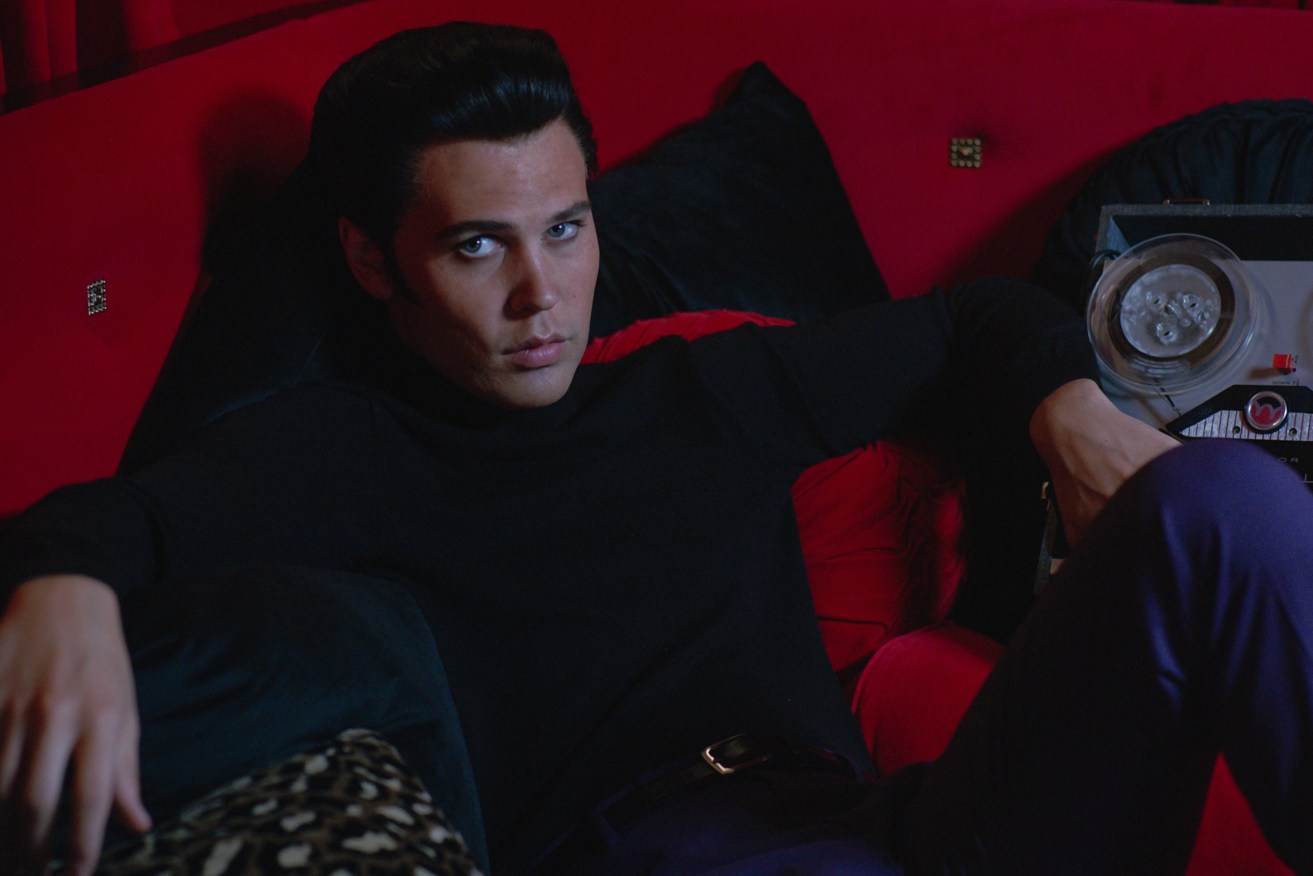Film review: Elvis
Baz Luhrmann’s sparkly new biopic has some flaws, but it captures brilliantly the rock ’n’ roll charisma of Elvis at his peak.


Actor Austin Butler doesn't so much impersonate Elvis as embody him. Photo courtesy of Warner Bros Pictures
The reviews for Elvis have been all over the place, probably because the film is. There is the thrilling performance of Austin Butler but also an overlong narrative pasted together with sparkly glue and cartoon psychology. Elvis a carnival geek? Really?
The film’s great achievement is the way it captures the rock ’n’ roll charisma of Elvis at his peak – the whole coiffed and magnificent, hip-swivelling, two-octave-plus package – and manages to kick it forward a few decades to provide a new audience experience.
If there is one thing Baz Luhrmann does brilliantly, it is to put on a show, and in Butler, a little-known American actor who fought for the part, he found his muse. This isn’t prosthetic mimicry of the Bohemian Rhapsody kind; over three years Butler built himself up so he wasn’t so much impersonating Elvis but embodying him.
The actor’s own spectacular looks seem to morph into the King’s and they begin to look the same, yet the performance is Butler’s. Even experienced actor Tom Hanks couldn’t take his eyes off him; he really is that good. Butler sings as well, at least in the early stages of the film, although Luhrmann stuck with the real thing in the late-career ballads.
Elvis is shown at his best and this is a family-approved version, which hints at the dissipation and affairs but omits his relationship with film star Ann-Margret which overlapped Priscilla. It is ostensibly the story of the financial abuse of Elvis by Colonel Tom Parker (Tom Hanks), who helped make him a huge star but whose greedy manipulation of Elvis’s career turned the singer into a sacrificial lamb, cossetted in luxury with a doctor on standby.
It is a melodrama that needs no embellishing yet the storyline is muddled and further obscured by a strange performance from Hanks that never quite seems real.
Elvis is shown as the rebel music lover whose sexually suggestive stage moves were just the power of the music in him. “If I can’t move, I can’t sing,” he says.
He takes on the establishment, befriends black musicians and stands up for youth and freedom. The film leaves out his 1971 meeting with Richard Nixon, where he criticised The Beatles as anti-American and reportedly wanted them banished. It also hints at but never explores how much of Elvis’s success was at the expense of the black voices he so admired.
Luhrmann filmed on the Gold Coast and the cast features well-known Australian actors, including Richard Roxburgh, David Wenham, and two former South Australians, Kodi Smit-McPhee as the country singer Jimmie Rodgers Snow and Xavier Samuel as the guitarist Scotty Moore in Elvis’s band. Such is the power and look of the film, most are unrecognisable.
Elvis skips over the worst of fat Elvis and spends more time on the Memphis singer’s love of soul and the tent revivalist spirituals which first brought him to his knees. Some of the most exhilarating sequences depict musicians of the time, with Bo Diddley, Little Richard and BB King stunningly played by contemporary actors and artists. A sequence near the start where a black man sings falsetto and plays guitar while a woman dances is one of the best pieces of visual story-telling you could find.
But this is not a film that reflects or analyses. It is almost a series of vignettes or mini-shows: Elvis in his pink Beale Street suits, Elvis in leather, Elvis in the army, Elvis with Priscilla, the failed acting career and the musicals, the disappointments, then the triumph of the caped King in Las Vegas, the greatest show of all.
By the end, when the real Elvis is on screen, so fat and ill he can barely stand yet still somehow able to sing, we don’t even realise we have stopped marvelling at Butler’s cheekbones and started seeing Presley’s. It’s the kind of screen magic we rarely see. Elvis may have left the building but for Luhrmann, the show’s not over yet.
Elvis opens in Adelaide cinemas today.




